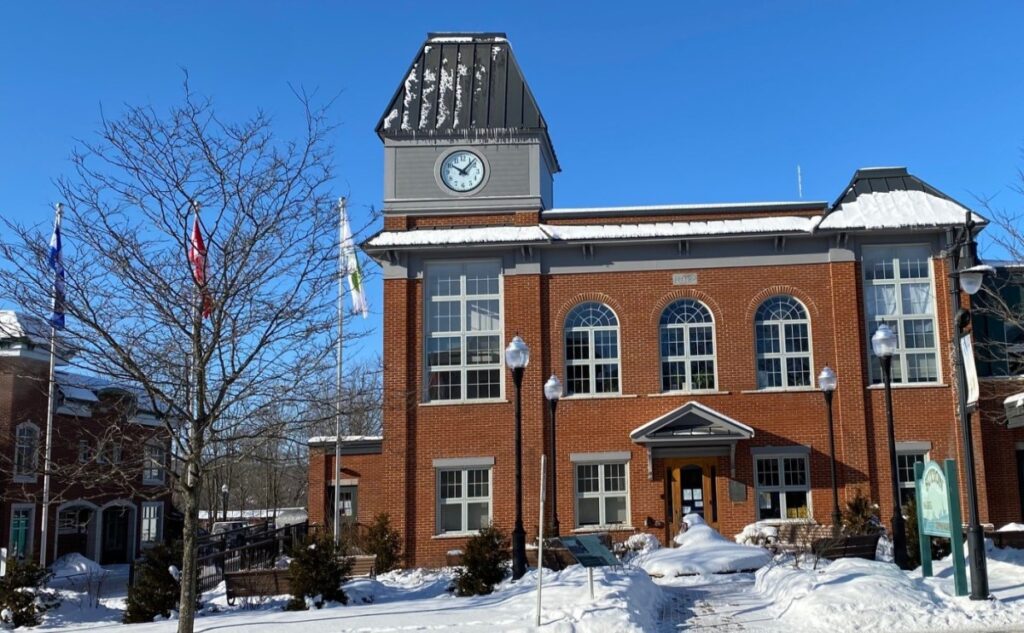City pre-emption rights: a land management tool
At the February 7th, 2024 meeting, the Town of Sutton adopted the By-law 334 (in French only) entitled “By-law concerning the exercise of the right of first refusal on immovables”. Here’s how it works:

What is a pre-emption right?
The municipal right of first refusal is a legal tool that enables cities to buy properties put up for sale on their territory as a matter of priority. It’s a bit like the city saying “Wait, before you sell, I want a chance to buy it myself!”.
This new legal power was given to municipalities by the Quebec government in June 2022, with the aim of preserving places for the well-being of the community. It is governed by the Cities and Towns Act (Art. 572) and cannot be used arbitrarily.
By-law 334 of the Town of Sutton specifies the terms of the pre-emption right and the reasons for which the Town would like to acquire a property on a priority basis, for example to support economic development, conserve a natural environment, preserve a site, etc. (see Art. 3 – Municipal purposes).
Why is this important?
The pre-emption right enables cities to acquire strategic real estate on a priority basis, with the aim of deciding on the use of a property according to the needs of the community and enhancing its built heritage.
It’s an important tool for controlling land development and ensuring that it’s done in a way that benefits everyone.
How does it work?
The pre-emption right is not exercised systematically. It is used selectively, based on land-use planning objectives and the budget available for property acquisition.
In practical terms, the city must first pass a resolution designating the property it may wish to acquire, and then send a notice of subjection to the owner, obliging him or her to declare any offer to purchase (see Art. 4 – Subjection of a property). If a property owner wishes to sell a subject property on the Town’s territory, the Town may exercise its right of first refusal and purchase the property in place of the original buyer, at the same cost as that proposed by the buyer. The municipal council must then adopt a resolution deciding whether to purchase the property in question or not to purchase.
Who benefits?
It benefits all the city’s residents by ensuring coherent development and preserving spaces that are important to the environment, such as parks or historic buildings, for the well-being of the community.
